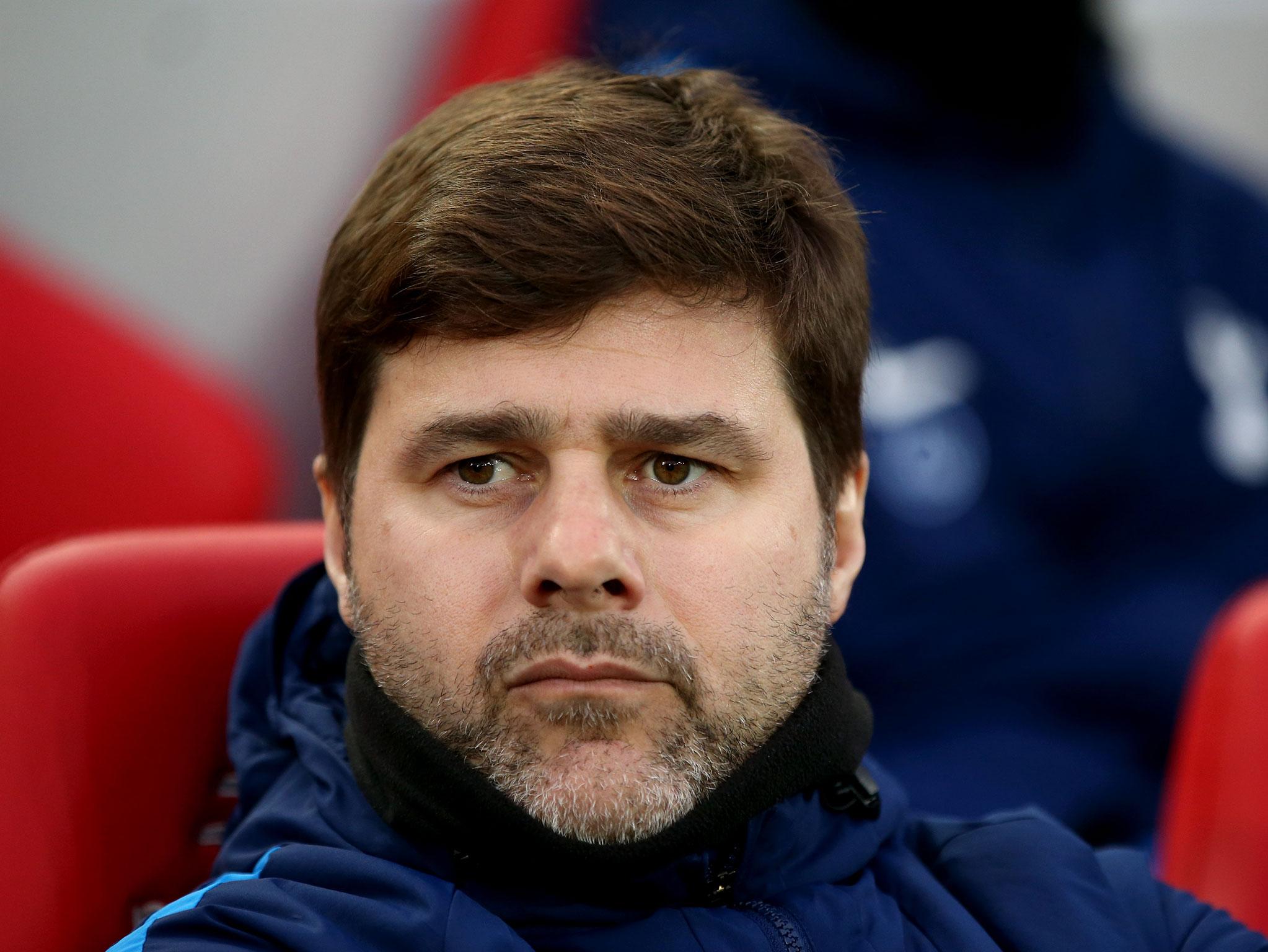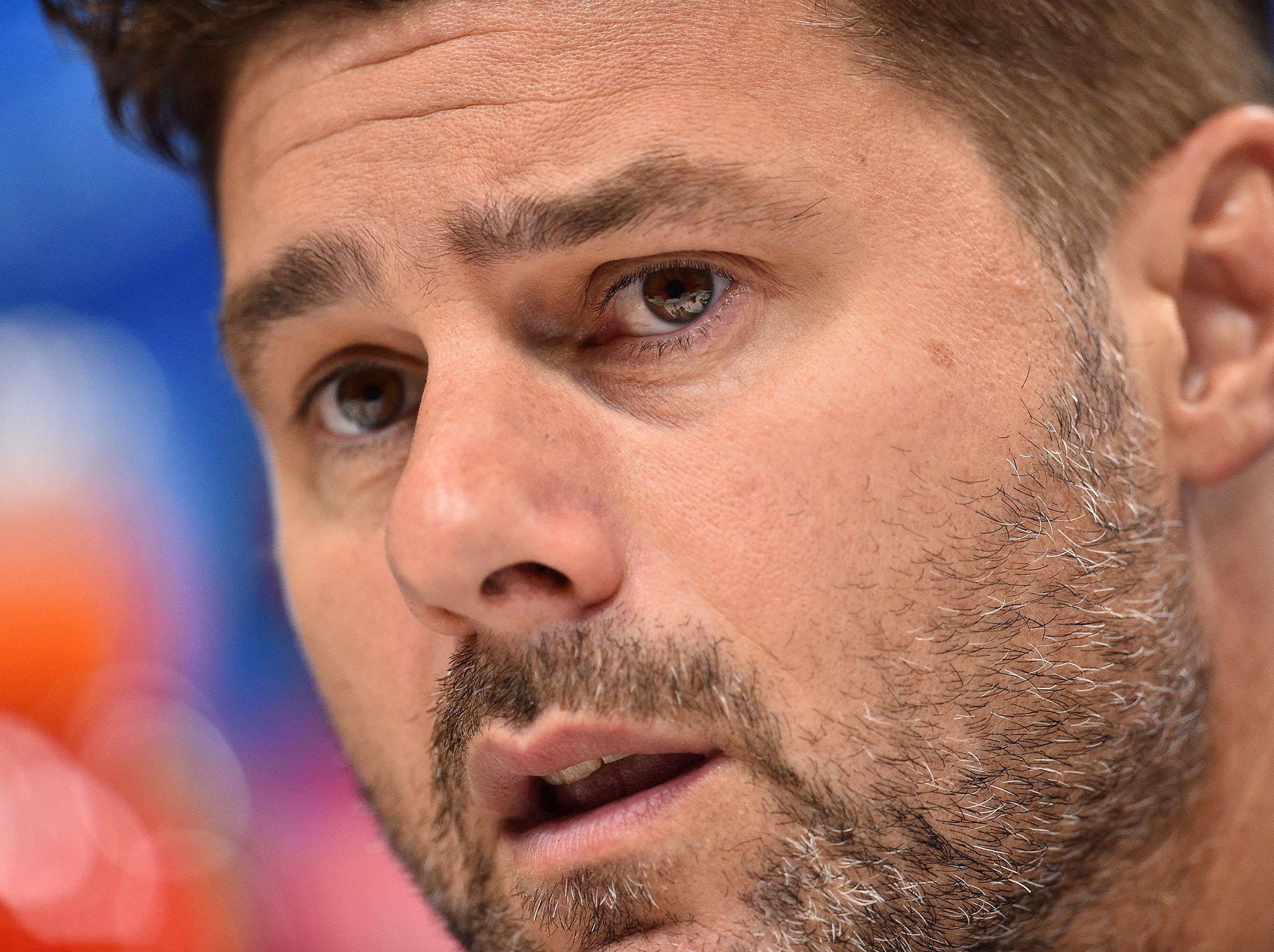Mauricio Pochettino fears English football's moral fixation with diving is 'killing the game'
Pochettino also reserved harsh judgement for the use of video technology, saying that human refereeing errors were an intrinsic part of the game

Your support helps us to tell the story
From reproductive rights to climate change to Big Tech, The Independent is on the ground when the story is developing. Whether it's investigating the financials of Elon Musk's pro-Trump PAC or producing our latest documentary, 'The A Word', which shines a light on the American women fighting for reproductive rights, we know how important it is to parse out the facts from the messaging.
At such a critical moment in US history, we need reporters on the ground. Your donation allows us to keep sending journalists to speak to both sides of the story.
The Independent is trusted by Americans across the entire political spectrum. And unlike many other quality news outlets, we choose not to lock Americans out of our reporting and analysis with paywalls. We believe quality journalism should be available to everyone, paid for by those who can afford it.
Your support makes all the difference.Mauricio Pochettino fears that English football’s tendency towards over-analysis, and its fixation on minor issues like diving, is slowly “killing the game”. Speaking after Dele Alli was booked for simulation in the 2-2 draw against Liverpool at Anfield on Sunday - his third such offence in as many seasons - Pochettino voiced his belief that the general mood of moral panic within the game, over what he described as “minimal details”, risks stifling football’s natural expression.
Pochettino also reserved harsh judgement for the use of video technology, saying that human refereeing errors were an intrinsic part of the game. Likewise, he argued that simulation on the pitch, while an offence rightly punishable under the laws of the game, was simply a sporting tactic rather than anything more sinister, insisting: “Football is about trying to trick your opponent.”
The Tottenham manager has admitted in the past that during his playing days at Newell’s Old Boys and Estudiantes, diving to win a penalty from the referee was regarded as a skill, one even practised in training. And Pochettino’s distaste for English moralising is underpinned by the fact that it was his leg over which Michael Owen dived during the 2002 World Cup, ultimately sending England through to the knockout stages at Argentina’s expense.
Doubtless Pochettino will be accused in some quarters of giving divers a free pass. Yet equally, he deserves a good deal of credit for trying to convey a nuanced, intelligent sentiment in a language that is not his first. He agreed that Alli’s dive merited a booking, although he denied that Alli was beginning to develop a bad reputation amongst referees. But it was the froth and furore that followed which he found most baffling.
“Look, it was a yellow card,” he said. “It happens. The referee was right. During different games, a lot of situations like this happen. The problem now is that we are so sensitive about the situation, and then we are so focused on Dele Alli. It’s too much sometimes. There is such a focus on this type of situation. I think it’s a minimal issue.
“Look, there are a lot of positives from Dele. Of course, he's not perfect. Nobody is perfect. Of course, he is a clever boy. He is a little bit nasty. The problem is that, more than this type of situation, I am worried we are going to change the game that we know.”

Whereupon the discussion abruptly opened out into broader themes: into the media, into English exceptionalism, into the very essence of the game. “Football is a creative sport,” he said, “in which you need the talent that grows in a very intelligent person, a very smart brain. And now we are so focused on minimal details. I am worried that in a few years, we are pushing the sport we love now - a passionate sport that people love to watch around the world - into a very rigid structure. With VAR, with focusing too much on small actions like this.
“Football is about trying to trick your opponent - yes or no? Tactics – what does ‘tactic’ mean? When you do tactics, it is to try to trick the opponent. You play on the right, but you finish on the left. Twenty years ago, thirty years ago, we all congratulated a player when he tricks the referee like this. That is the football that I was in love with when I was a child. Yes, in Argentina, but in England too. You believe that in England you were honest and always perfect?”
Finally, Pochettino argued that referees should simply be allowed to officiate and make errors unmolested by instant judgement and granular video analysis. “I am worried that maybe we are going to kill the game,” he said. “We love this game. Referees are humans too, and sometimes they are right, sometimes they are not right. In 10 months, over the whole season, sometimes it is against you, sometimes it is for you. For me, I like this type of football.

“My worry is this: of course if you dive, and the referee saw you, you are punished. And he deserves it. But don’t go more crazy.”
After a turbulent few days, Alli will probably be grateful for a night away from the spotlight, as he is set to be rested for Tottenham’s FA Cup fourth-round replay against Newport County at Wembley on Wednesday night. Pochettino said he would make several changes, with crunch games against Arsenal and Juventus coming up in the next week. Toby Alderweireld and Danny Rose could both return from injury, while Harry Winks, Fernando Llorente, Juan Foyth and Serge Aurier are all in contention for a start.
Naturally, Tottenham will remain heavy favourites against their League Two opposition, who will be bringing almost 8,000 fans to Wembley from South Wales. With Newport receiving 45 per cent of gate receipts, plus television revenue, this season’s cup run could end up earning the club around £700,000 - a third of their annual budget.
Join our commenting forum
Join thought-provoking conversations, follow other Independent readers and see their replies
Comments